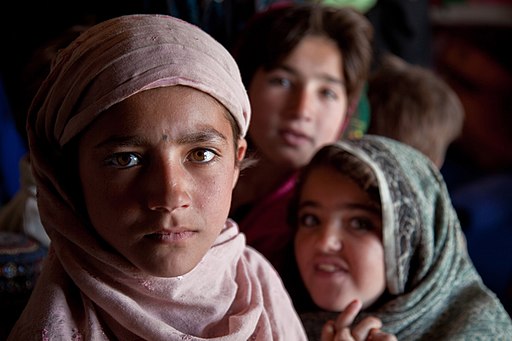
Crisis Schooling: Defying Afghanistan’s Taliban
Each day you learn from home to avoid catching Coronavirus, you’re doing crisis schooling. Whenever you strain to see your teacher’s blurry face on Zoom, or stay in the stale air of your bedroom, learning equations off a crashing computer, you’re doing crisis schooling. In this blog series, we’ll explore the inspirational ways students fight to get an education during the world’s worst crises, from global pandemics to warzones. First of all, we look at Afghanistan’s secret schools for girls, that risked all to educate under the Taliban.
Would you risk being murdered so that your daughter could learn to read? Would you face being flogged, stoned and imprisoned so that she could keep going to school? In 1996, the Taliban – a group of religious fundamentalists – rolled their tanks into Afghanistan’s capital city, Kabul, stripped it of its resistance, and took away women and girls’ right to go outside, receive medical care, and get an education.
Women were forcibly confined to their homes, unable to leave without being accompanied by a male relative. They were also required to wear a burqa, a garment which covers the body from head-to-toe, with a mesh screen for the eyes. The Taliban ordered that even the windows of houses to be painted over, to prevent passers-by seeing women inside.
An Education Crushed
The education system in Afghanistan has been ravaged by three decades of war, and today 3.7 million children are out of school. Even before the Taliban it was dangerous to educate girls — one student, Suraya Pakzad, was just twelve years old when an attacker hurled a rocket into her school, blowing apart two of her classmates. Later, under Taliban law, girls’ education became totally illegal, punishable by acid attacks, beatings and death. The Taliban frequently killed girls attending underground schools, dumping their bodies in public view as a warning.
Secret Schools Persisted
And yet, secret schools continued to flourish, mushrooming in people’s cellars and one-bedroom apartments. The women and men running these schools were determined that girls should read, count, learn literature and History, and expand their minds as an investment, however uncertain, for the future. Teachers often had scant resources (even buying school supplies was dangerous). They had to cobble together a curriculum from outdated textbooks, scraps of information and their minds, figuring that some education was better than none.
Suraya Pakzad, who went on to develop secret schools herself, initially in her tiny flat but eventually all the way out into Afghanistan’s provinces, says this:
“It was risky, but as an educated woman, it was my responsibility to do it. I encouraged my friends to do the same. One day, the future generation will ask us, ‘what did you do for us when the situation was difficult?”
Sabana Basij-Rasikh disguised herself as a boy in order to leave the house with her sister. They would head to their secret school, hiding their books under vegetables, to appear as though they were just shopping. In Suraya Pakzad’s schools, girls studied next to cans of kerosene, ready to burn all evidence of learning if the Taliban should burst in.
Knowledge is Power for the Future
But why would anyone risk such violent punishment to ensure girls were educated? The answer is that behind almost any account of a woman who did so under the Taliban, you will also find someone else (usually a father, in Afghanistan’s deeply patriarchal society) who believed it was worth risking death to educate them. Ultimately, doing so ensures a chain reaction whereby one person challenges the fear of death to deliver the hope of a better future, and then woman after woman after woman will be armed with power, knowledge and self-determination. Such qualities will not only benefit them, they will also more than likely help lead to the downfall and removal of organisations just like the Taliban.
